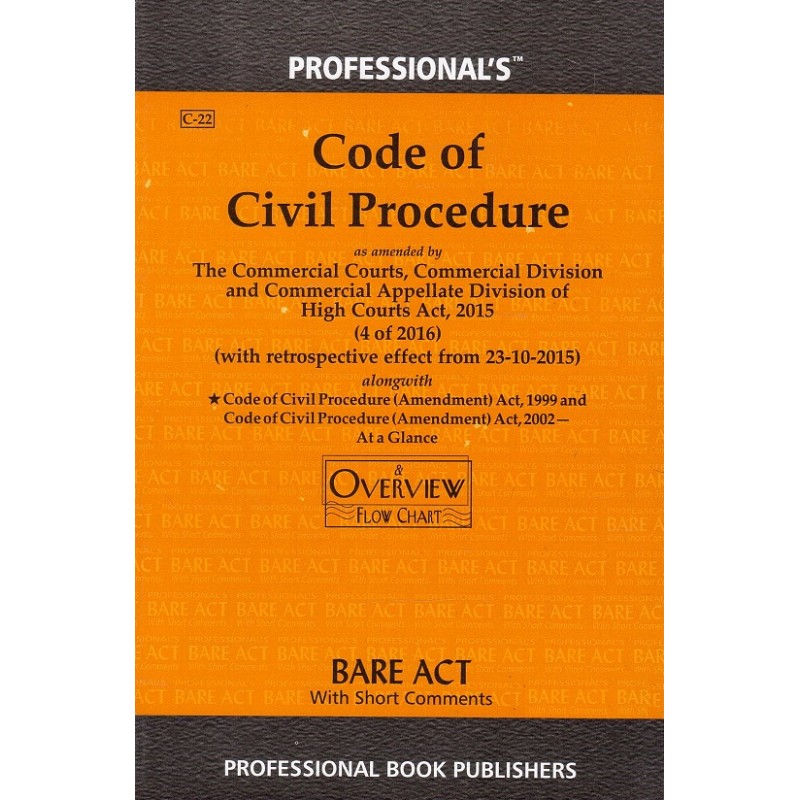
What is Order 6 Rule 17 of the Code of Civil Procedure (CPC) and its essential requirement
Order 6 Rule 17 of the Code of Civil Procedure (CPC) deals with the amendment of pleadings in a civil case. It is a crucial tool for lawyers and litigants as it enables them to correct any mistakes or errors in their pleadings and introduce new facts and arguments in the case. The Supreme Court of India has issued several important judgments on Order 6 Rule 17 of CPC in recent years, which have clarified the scope and application of the rule. In this blog, we will examine the key provisions of Order 6 Rule 17 of CPC and discuss some of the important Supreme Court judgments on the same.
What is Order 16 Rule 17 is ?
Order 6 Rule 17 of the Code of Civil Procedure (CPC) is a provision that allows a party to amend their pleadings at any stage of the proceedings in a civil case. It is designed to ensure that the real issues in the case are determined and that justice is done between the parties. The rule is flexible and liberal, allowing parties to correct mistakes and introduce new facts and arguments in the case, subject to the requirement that it does not unfairly prejudice the other party. The scope and application of Order 6 Rule 17 of CPC have been clarified by several important judgments of the Supreme Court of India.
What are the important Ingredients Order 16 Rule 17 is
The key ingredients of Order 6 Rule 17 of CPC are:
-
Amendment of pleadings: The provision allows a party to amend their pleadings at any stage of the proceedings in a civil case.
-
Liberal approach: The rule is designed to adopt a liberal and flexible approach towards amendments of pleadings to ensure that the real issues in the case are determined and justice is done between the parties.
-
Fairness: The provision requires that any amendment to pleadings does not unfairly prejudice the other party.
-
Conditions on amendments: The court may impose conditions on the amendment, such as costs or an adjournment, to ensure that the other party is not unfairly prejudiced.
-
Mala fide amendments not allowed: The court will not allow an amendment that is mala fide or designed to delay or harass the other party.
-
Consideration of nature of amendment, reason for delay and prejudice to the other party: The nature of the amendment, the reason for the delay in seeking the amendment, and the prejudice that the other party is likely to suffer as a result of the amendment should be considered by the court.
When to Use It
Order 6 Rule 17 of CPC can be used in various situations in civil cases, such as:
-
Adding parties: A party can seek to add a new party to the case if it is necessary to determine the real issues in dispute.
-
Adding claims or defenses: A party can seek to add new claims or defenses to their pleadings if they were not included initially or if new facts or circumstances have arisen.
-
Correcting errors: A party can seek to correct any errors or mistakes in their pleadings, such as typographical errors or mistakes in the legal description of a property.
-
Removing superfluous matter: A party can seek to remove any superfluous or irrelevant matter from their pleadings.
-
Clarifying existing pleadings: A party can seek to clarify or amplify existing pleadings to make their case more understandable or to provide additional details.
-
Substituting parties: A party can seek to substitute a new party in place of an existing party, such as when a party dies or becomes incapacitated during the case.
In all of these situations, the court will consider whether the amendment is necessary for the proper determination of the case and whether it will unfairly prejudice the other party.
What are the technalities to be considered
When seeking to amend pleadings under Order 6 Rule 17 of CPC, there are several technicalities that need to be considered:
-
Timing: The amendment should be sought at the earliest possible opportunity and before the case has progressed too far.
-
Nature of amendment: The nature of the amendment should be considered to determine whether it is a mere technical or formal amendment, or whether it is a substantive amendment that introduces new facts or arguments.
-
Reason for delay: If the amendment is sought after a significant delay, the court will consider the reason for the delay and whether it is justified.
-
Prejudice to other party: The court will consider whether the other party will be unfairly prejudiced by the amendment, such as if it would require a complete re-opening of the case.
-
Compliance with court procedures: The amendment must comply with the court's procedures for filing and serving pleadings.
-
Payment of costs: The court may require the party seeking the amendment to pay the costs of the other party if the amendment is allowed.
It is important to consult with a legal professional to ensure that all technicalities and procedures are followed when seeking to amend pleadings under Order 6 Rule 17 of CPC.
Important Superme Court Cases on Order 6 Rule 17 of CPC
There have been several Supreme Court cases that have discussed and interpreted Order 6 Rule 17 of CPC. Some of the key cases are:
-
Rameshwar Prasad and Ors. v. Shambehari Lal Gupta and Ors. (AIR 1964 SC 1952): In this case, the Supreme Court held that the power to allow amendments under Order 6 Rule 17 should be exercised liberally to ensure that the real controversy between the parties is determined.
-
M/s. Sujir Ganesh Nayak and Co. v. State of Karnataka and Ors. (AIR 2000 SC 2018): In this case, the Supreme Court held that a party seeking to amend pleadings must explain the reason for the delay and show that the proposed amendment is necessary to determine the real issues in the case.
-
ITC Limited v. Jubilant Food Works Ltd. (2017) 2 SCC 718: In this case, the Supreme Court emphasized that the court should balance the interest of both parties while deciding whether to allow an amendment under Order 6 Rule 17, and should ensure that the other party is not unduly prejudiced.
-
Mahesh Chandra Gupta v. Union of India (2018) 9 SCC 331: In this case, the Supreme Court held that a party seeking to amend pleadings must make a specific request for amendment and should not rely on vague or general statements.
These cases highlight the importance of ensuring that any amendments to pleadings under Order 6 Rule 17 of CPC are made in a timely and specific manner, and that they are necessary to determine the real issues in dispute without unfairly prejudicing the other party.
More >>

Jyoti Sharma vs. Vishnu Goyal & Anr. 2025 INSC 1099
This was a long running legal battle between a landlord and her tenants over a shop. The landlord, Jyoti Sharma, wanted her shop back for two main reasons: The tenants had stopped paying rent. She needed the shop to expand her family's business (her bonafide need).
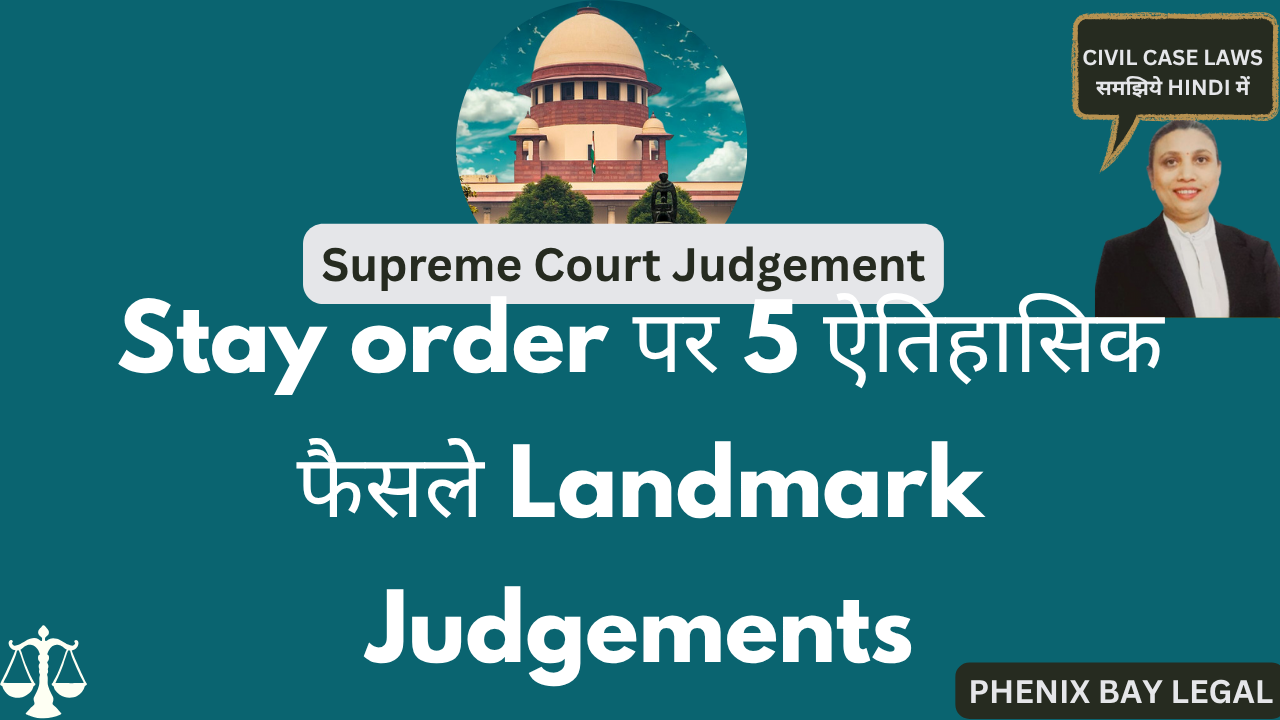
Landmark Judgement on Injunction
In civil, commercial, or even family disputes. But when is a simple injunction suit enough? When do you need to add a declaration of title? And how do courts balance urgency vs evidence in interim relief?
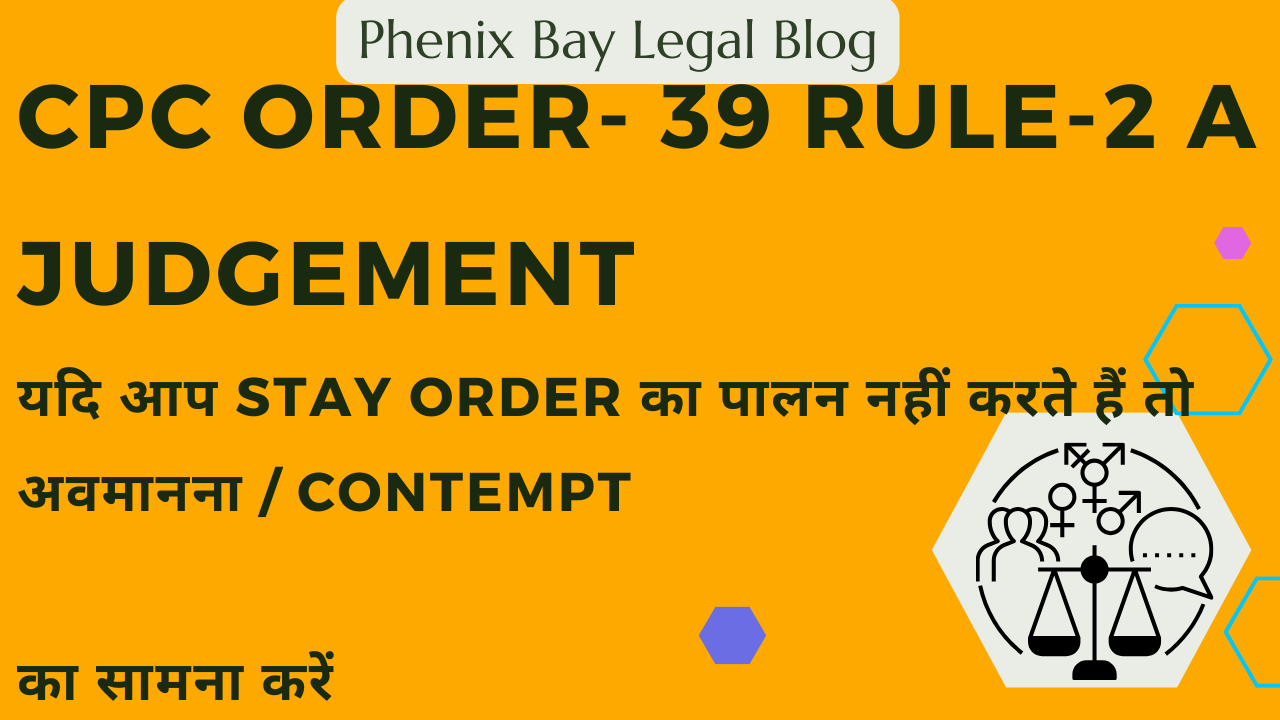
Case Analysis: Stay Order Violation and Contempt of Court by Supreme Court of India
Giving an undertaking to the court is equivalent to an order of injunction—any violation invites contempt proceedings.Injunction orders remain valid until formally vacated by a court—violation before vacation can lead to punishment.
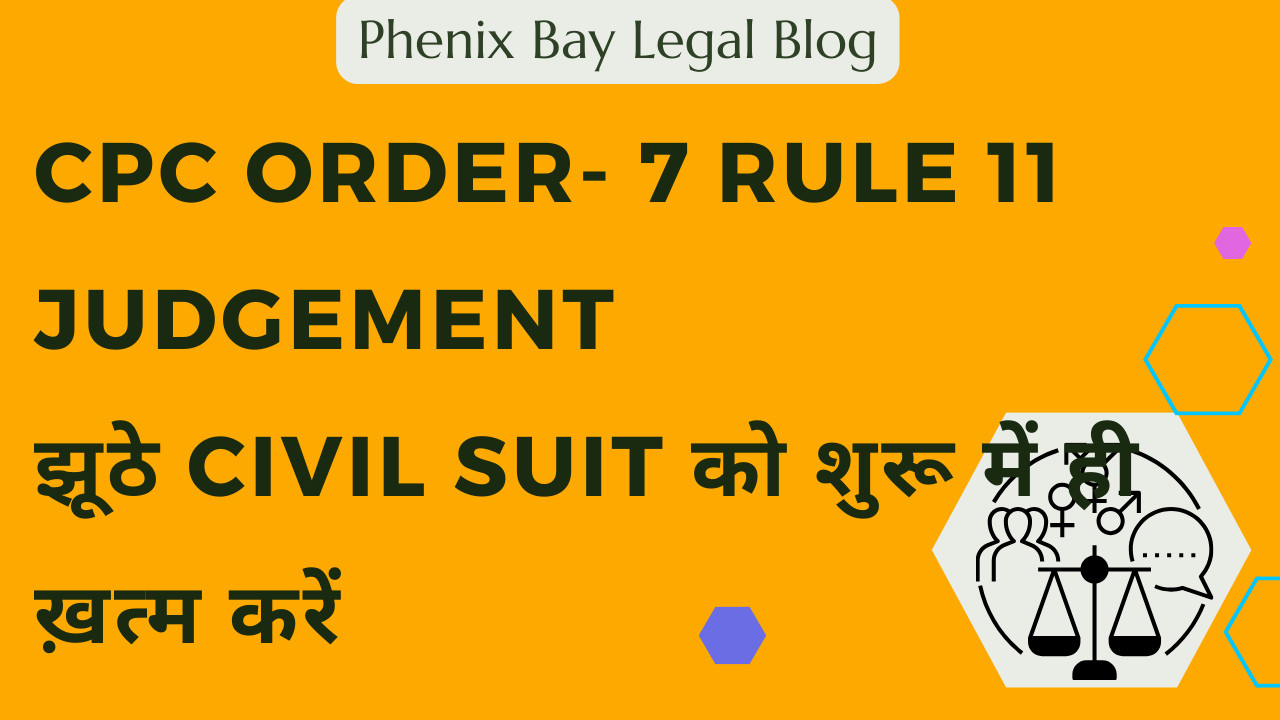
Order 7 Rule 11 of CPC Explanation in Land Mark Judgement
The Sopan Sukhdeo Sable judgment is a landmark ruling that reinforces Order 7 Rule 11 of CPC as a safeguard against frivolous and legally untenable claims. It highlights the importance of examining only the plaint’s contents to decide whether a suit should be dismissed at the threshold.
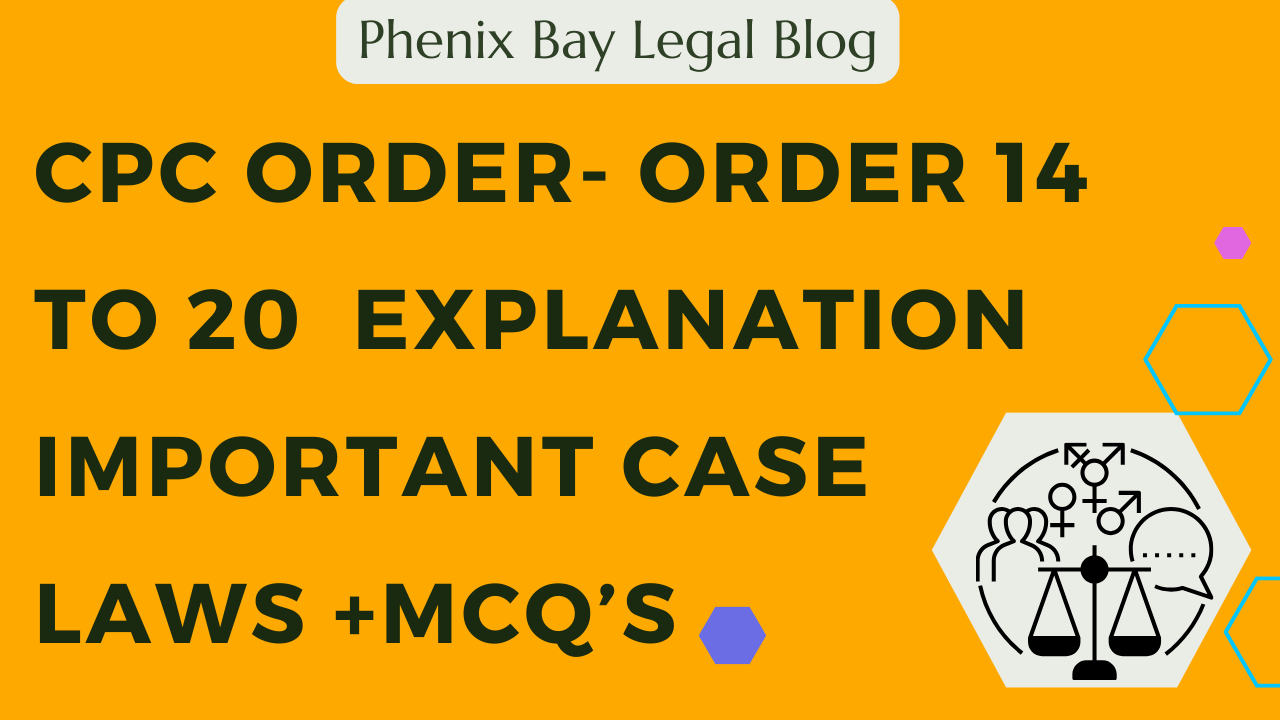
CPC Order- Order 14 to 20 Explanation IMPORTANT CASE LAWS +MCQ’S for Judiciary Exam Preparation
CPC Order- Order 14 to 20 Explanation IMPORTANT CASE LAWS +MCQ’S for Judiciary Exam Preparation
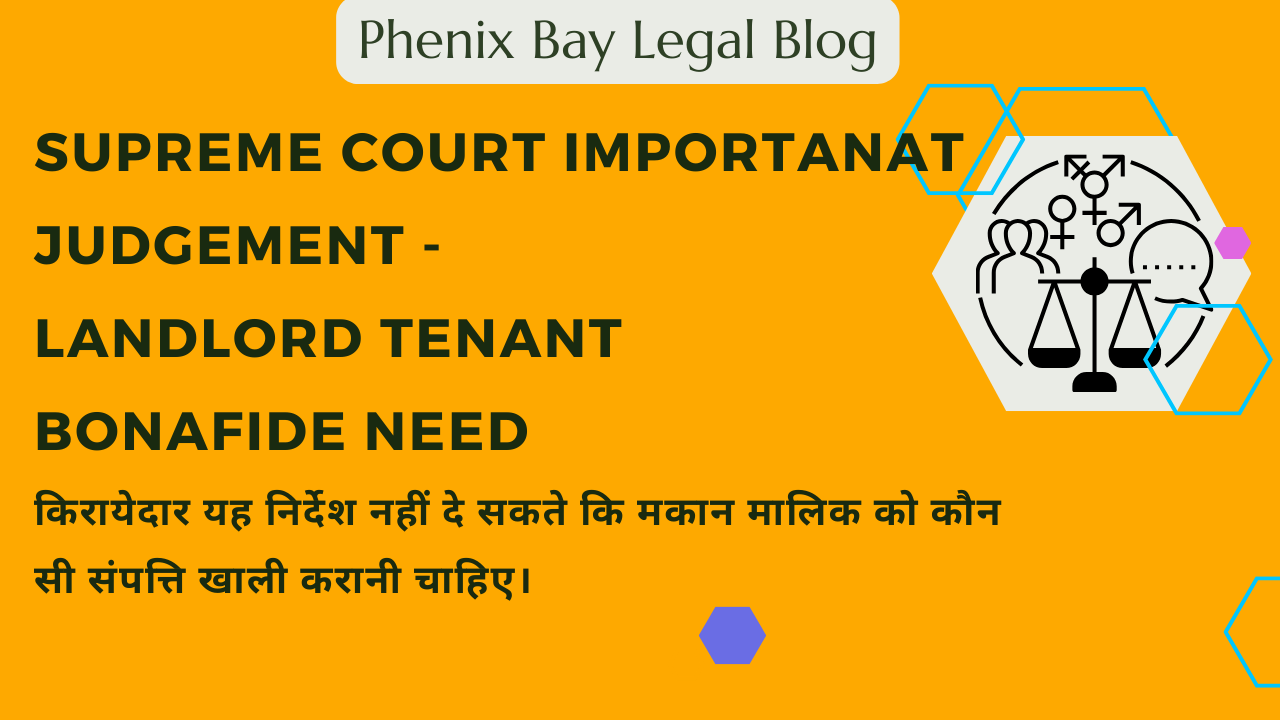
Supreme Court ImportanatJudgement - Landlord Tenant Bonafide need
This case involves a dispute over eviction of a tenant based on the bona fide need of the landlord. The Supreme Court ruled in favor of the landlord, reversing the High Court's decision. Below is a detailed breakdown of the judgment with relevant legal principles, precedents, and reasoning.